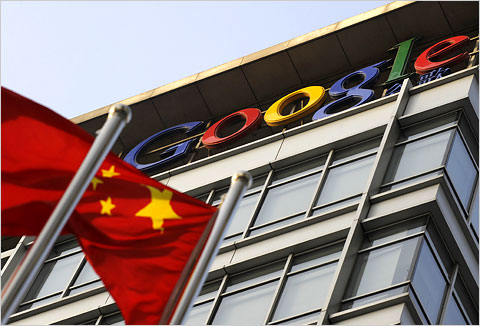
Much is unknown about the basis of Google’s astounding assertion it could choose to exit China unless it was given more business leeway. A company with the foresight to invent a futuristic service model does not crumble at the first hurdle in what would be the richest market, for information search and other uses yet to be designed. The China market is not yet a goldmine for Google, but every foreign company doing business there dreams of what is to come. It is implausible in the circumstances that Chinese government filtering of Google’s search content has suddenly offended the firm’s mission beliefs. It set up in China four years ago on explicit terms.
Google also implied Chinese involvement in cyber attacks on its systems and other unnamed technology companies. E-mail accounts of citizens under security watch were believed to have been compromised. This could be credible. But theft of proprietary and corporate secrets can be countered through treaty law (World Trade Organization, for example) and licensing of select technologies. Google could also have taken the e-mail hacking issue straight to Beijing, but without the “or else” bluster.
Until Google makes fuller disclosures to explain a challenge that does not square with its business purpose, two broad observations may be made. Multi-national companies chase profit anywhere they can. They operate willingly under laws and exclusions which may differ from their culture and experience. In China’s case, it is understandable a government not completely secure of its remit would want to monitor people it thinks are a danger to national security. The very secure Bush government kept surreptitious checks on blacklisted citizens after the Sept 11 trauma, including the books they were reading. That is the prerogative observation.
The business observation holds that China would be making a strategic mistake if it believes it is too important a market for an MNC to walk away from. Google has much to lose if it quits in anger, but not all industries would be surefire bets in China. If Google does go, it would be a timely reminder for China’s puffed-up bureaucrats that theirs is still only a market of promise.
More intriguing a development is the U.S. government lining up forcefully behind Google. Secretary of State Hilary Clinton asked China to “explain” the cyber attacks charges, in a sharp reaction. It does not look a routine matter of supporting U.S. industry, more like the Obama people stiffening in their hitherto friendly disposition towards China. There are enough issues that divide the two nations, the latest being carbon emissions controls and an arms sale to Taiwan. The U.S.-China relationship built on core mutual interests is sturdy, but nothing can be assumed.
Via The Straits Times